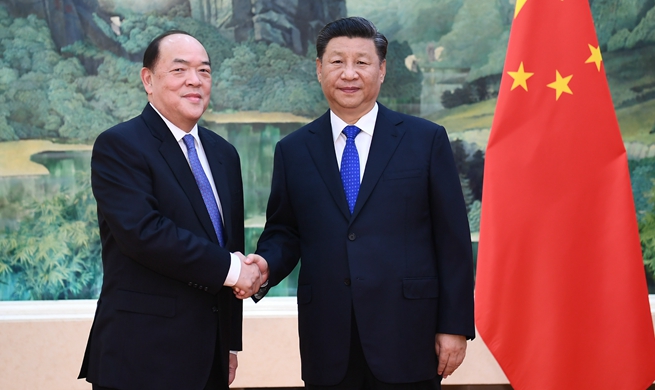CHICAGO, Sept. 11 (Xinhua) -- Researchers at Northwestern University (NU) have developed a new model showing that rubbing two objects together produces static electricity, or triboelectricity, by bending the tiny protrusions on the surface of materials.
At the nanoscale, all materials have rough surfaces with countless tiny protrusions. When two materials come into contact and rub against one another, these protrusions bend and deform.
Using a simple model, the researchers found that these deformations give rise to voltages that ultimately cause static charging. Voltages arising from the bending protrusions during rubbing are large enough to cause static electricity.
This phenomenon is called the "flexoelectric effect," which occurs when the separation of charge in an insulator arises from deformations such as bending.
"Our finding suggests that triboelectricity, flexoelectricity and friction are inextricably linked," said Laurence Marks, professor of materials science and engineering in NU's McCormick School of Engineering. "This provides much insight into tailoring triboelectric performance for current applications and expanding functionality to new technologies."
The research could have important implications for existing electrostatic applications, such as energy harvesting and printing, as well as for avoiding potential dangers, such as fires started by sparks from static electricity.
Greek philosopher Thales of Miletus first reported friction-induced static electricity in 600 B.C. "Since then, it has become clear that rubbing induces static charging in all insulators - not just fur," Marks said. "However, this is more or less where the scientific consensus ended."
The research will be published on Thursday in the journal Physical Review Letters.

















